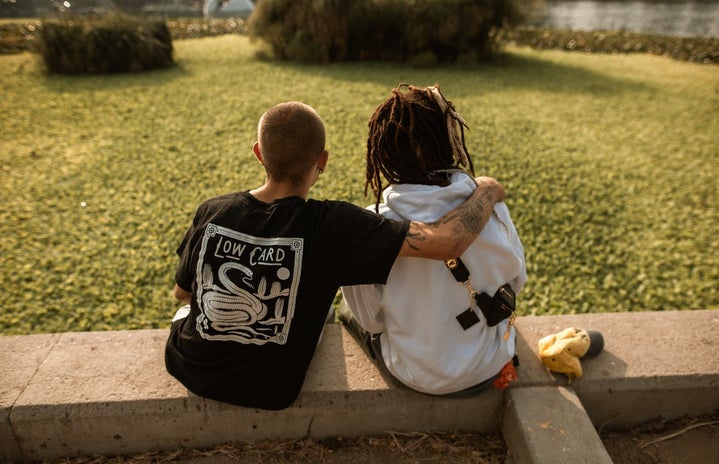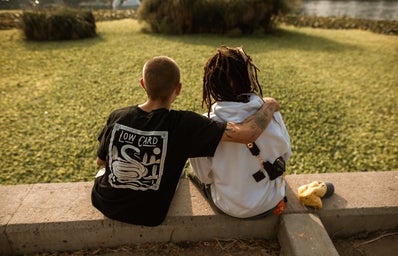My journey with coming to terms with my neurodivergence only really started after years of trying to hide it and blend in. My day-to-day life as a 14-year-old was best summarized as continually falling victim to destructive mood swings, and even though everyone around me was ready to dismiss my experiences as “just part of being a teenager,” I knew something about me was different.
While all my friends were prone to having days of depression, I realized the scales were different in how quickly I had perfected the routine of casually excusing myself at any given moment to go cry in the nearest bathroom. I understood I had to become a flawless chameleon, or else people would realize how distinctly alien I was and that was a reality I had to avoid at all costs, no matter how draining.
It was profoundly exhausting working so hard to appear like I wasn’t who I was. As much as I wished I was someone who didn’t agonize over simple care tasks like eating and keeping her space tidy, I wasn’t fooling anyone who knew me and I eventually reached a point where I was too tired to try and lie anymore.
Inevitably, we can’t keep our performances up forever. So I started researching the behaviors I hadn’t been able to shake for years, made an appointment with a therapist and gathered up the courage to enter the psychiatrist’s office.
I walked out with a diagnosis and having committed to attend weekly sessions with a therapist near me. It was explained to me that though these experiences had been life-long for me, I could only qualify for the diagnosis I was given once I had turned 18 because disorders like mine weren’t diagnosed in teens.
Though I wasn’t conscious of it yet, I think that moment made me harbor some personal resentment towards the clinical model of mental health. Don’t get me wrong, knowing it was a disorder that was the context behind why I had such a harder time doing the things everyone else took for granted helped me a lot.

But honestly, it wasn’t until I started choosing to view myself as someone who just might have to do things a little differently than everyone else instead of someone who has to work hard to become like everyone else that I really saw improvements in my life. When I started talking more openly about my experiences and finding spaces where people felt free to talk about disability, I really began to feel at peace with myself.
Truthfully, having an empathetic social network has done so much more to help me accept my reality as a neurodivergent adult than any page in the DSM-V ever has. I am so, so blessed to have friends in my life who love me and are happy to take my needs into consideration, even if it might take more work to do so.
No one has helped me put my life in perspective more than my best friend, who has helped me understand that everyone has needs unique to them and mine don’t make me unloveable. Thanks to them, I’ve learned that nothing is more valuable to me than investing in my relationships and embracing the intimacy that comes with being seen for who you really are, less-than-pretty parts included.
Though I wish I hadn’t wasted so much of my life trying to hide the aspects of myself I thought were “too much,” those years have given me a remarkable insight into how important it is that I ensure that my loved ones don’t ever feel like that when it comes to our relationship.
The reality is that I might always need extra support. I might never have the energy needed to get all my assignments done and also keep my living space clean. I might always need some extra reassurance from my loved ones that they don’t secretly hate me. I might never be able to order at Chipotle without breaking out in an anxiety sweat.
But none of this defines me. For every weird brain hack or quirky ritual I have to do to live my life, there’s something uniquely lovely about me I wouldn’t change for the world. I’m done torturing myself with picturing what my life could be like if I had a different brain. I deserve better than that, and so does every other person who has wasted years of their life despising themselves for not being neurotypical.
Besides, now Chipotle has an online ordering system, so luckily, I can still enjoy some carnitas.



